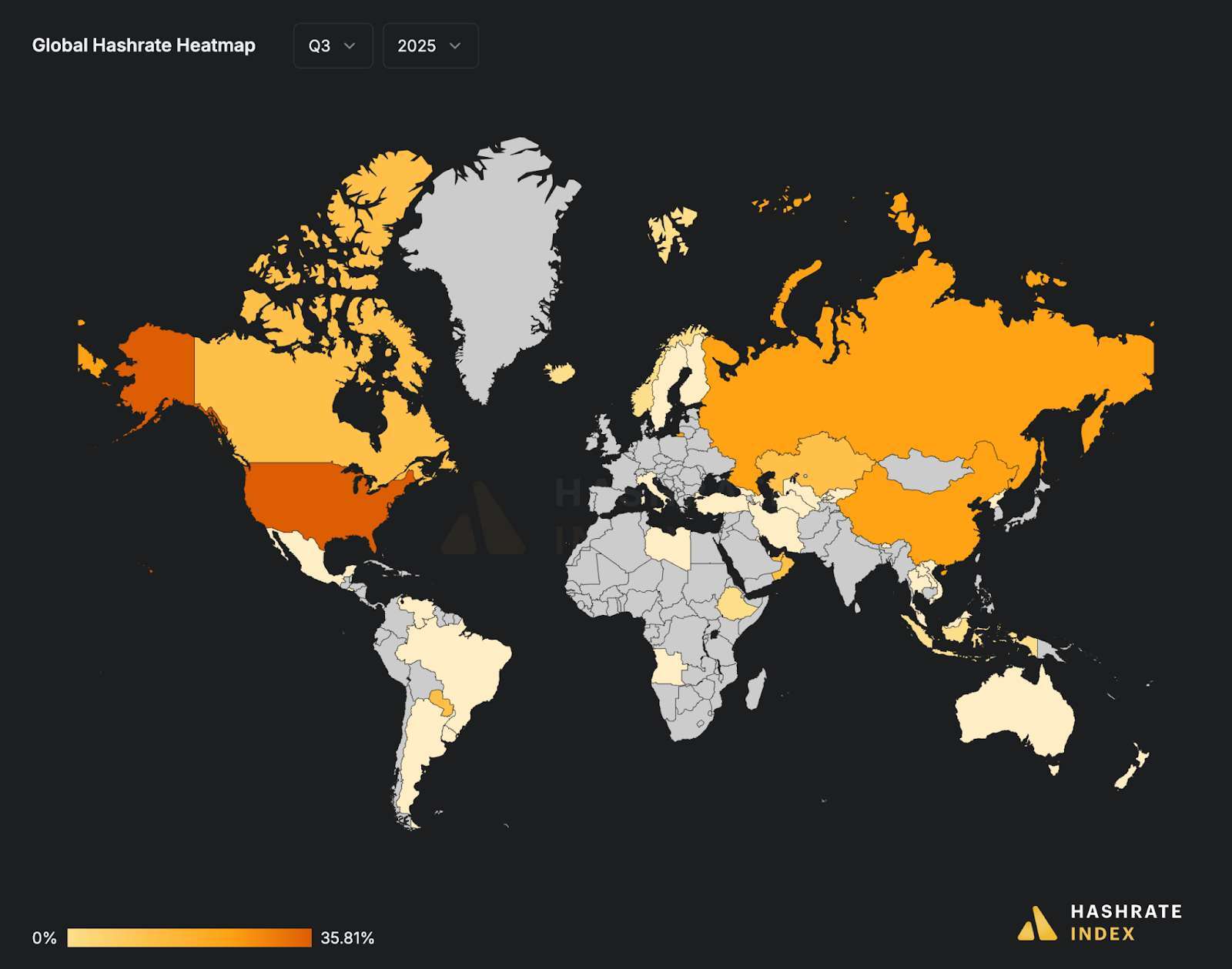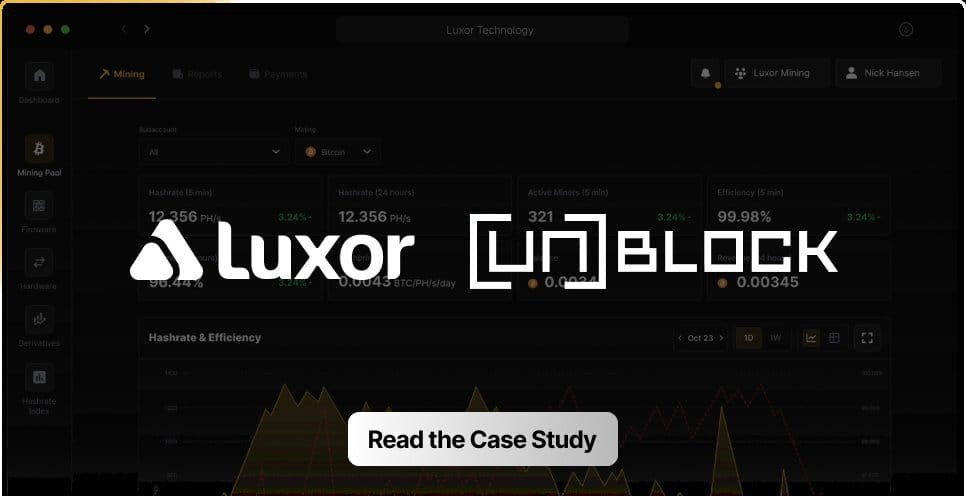Presented by
Fractal Bitcoin
Happy Tuesday! We’re back in the newsletter trenches fighting Bitcoin FUD. This time, we revisit ‘China bans Bitcoin’ FUD which is somehow back in vogue?
Plus, headlines from this week. Lots of Quarterlies to discuss!
Is Bitcoin’s most active scaling solution already here?
Fractal’s rapid hashrate growth and transaction growth suggest it might be.
A new report by Blockspace Media breaks down Fractal Bitcoin, the chain that’s quietly achieved:
🔸 ~80%+ of Bitcoin’s hashrate via merged mining
🔸 11 M+ daily transactions (comparable to Solana & Base)
Powered by Cadence Mining, a novel hybrid block production model, and seamless onboarding via UniSat, Fractal is emerging as Bitcoin’s most used innovation layer.
The China Bitcoin ban that didn’t happen
Every year, it seems, we revisit one of Bitcoin’s most cherished traditions: news reports surface that China bans bitcoin, or bitcoin mining, or crypto trading (or some combination therein), and then the reports are debunked.
Well, welcome to Groundhog Day.
Over the weekend, a handful of news-aggregation gimmick accounts – looking at you, Unusual Whales – circulated unsubstantiated news that China “has officially banned cryptocurrency trading, mining, and related services.”
It’s unclear where this information came from, or what sourcing (if any) these accounts used. But they are false, not the least of which because China already banned bitcoin mining on a province-by-province basis in 2021.
“It’s fake news. There’s no official announcement or ruling,” Luxor Head of Hardware, Lauren Lin, told Blockspace.
Lin would know, as she works full time covering the broker relationship with multiple Asian-based entities.
She added that the Chinese government has not updated any documentation on its website that would indicate any changes or addendums to the 2021 ban.
“The State Council of the People's Republic of China holds the highest executive power, making its pronouncements the definitive source,” Lin said. “While local governments, the central banking system, and judicial system may issue their own rules, these must always align with the State Council's directives.”
China moved to ban bitcoin mining in the summer of 2021. Per an official order dated September 3, 2025 from China’s National Development and Reform Commission, the new law “strictly prohibit[s] the addition of new virtual currency ‘mining’ projects [and] accelerate[s] the orderly exit of existing projects.”
China’s bitcoin mining ban became one of – if not the most – consequential event in the history of Bitcoin mining. The watershed development pushed mining operations out of the country, and the ensuing diaspora reshuffled hashrate all over the globe. The United States quickly emerged as the world’s largest bitcoin mining hub, with Luxor’s Hashrate Index estimating that the U.S. currently houses more than one third of Bitcoin’s hashrate.
However, the ban didn’t rid China of bitcoin mining entirely. Hashrate Index also estimates that China still produces 13.84% of Bitcoin’s hashrate. That’s nowhere close to the University of Cambridge’s estimate that China produced 71% right before the ban. But it’s not trivial, either, and it’s evidence that plenty of well-connected (or clandestine) bitcoin miners can still operate in the country if they know the right people (or if they are sneaky enough).

In fact, contrary to the fake news of renewed bans, there are industry reports that China might actually be relaxing its ban, or at least that Chinese miners are becoming more confident that they can expand operations without running afoul of the government. Lin noted that Luxor has “observed increasing interest in mining hardware in China lately.”
Maybe if mining activity increases enough in the country, the Chinese government will issue new guidance. But right now, there’s no confirmation that it is cracking down further (or easing up).
Luxor x Unblock: Mining in the Heat, Without the Headaches
Unblock deployed LuxOS across its fleet in Argentina — cutting monthly hashboard failure rates from over 4% to ~0.6% and improving uptime in high-temperature, off-grid environments through Advanced Thermal Management.
News From Blockspace
Want to get these headlines in real time? Join our Telegram group!
Bitcoin miners release July mining updates, Q2 earnings
Highlights include Galaxy Digital’s contract growth with CoreWeave, CleanSpark’s 1 GW of contracted power, Cango’s 50 EH/s goal reached, and Riot power credits climbing 160% - link
Strategy will no longer issue MSTR at below 2.5x mNAV
During its Q2 2025 earnings call on July 31, Strategy (MSTR) announced that it will no longer issue its MSTR common stock at multiples of native asset value (mNAV) lower than 2.5x, except in the case of financing dividend payments for its preferred shares (STRF, STRK, STRC, STRD). — link
Crypto ETFs post first outflows in 15 weeks, sheds $223 million: CoinShares
Last week, crypto exchange-traded products (ETPs) and exchange-traded funds (ETFs) recorded their first weekly outflows in 15 weeks, with total net outflows of $223 million reversing early‐week inflows of $883 million, according to asset manager CoinShares. — link
Metaplanet files ¥555 billion shelf registration for perpetual preferred shares with dividend capped at 6%
Metaplanet Inc. (TYO: 3350, OTCQX: MTPLF) today filed a shelf registration statement authorizing up to ¥555 billion ($3.7 billion) of perpetual preferred shares. — link
Blockspace Podcasts
On the latest Writer’s Room, Charlie and Colin dive into the parallels between today's Bitcoin treasury companies and the 1929 investment trust bubble.
Nolan and Donny join us to talk about the BitAxe pleb mining revolution, home mining setups, BitAxe device modifications, the lottery aspect of solo mining, heating applications, and why these small miners are becoming the best educational tool for understanding bitcoin mining from the ground up.

Where we drop fun topics with nothing to do with Bitcoin.
Did you know that the first beer gardens date back to 19th century Bavaria? Bavarian brewers needed to keep their beer cellars cool during the summer, so they planted horse chestnut trees for shade. Soon after, patrons started frequenting these spots to refresh themselves with brews and sun cover. To mollify the ire of tavern owners, who saw the gardens as a threat to business, King Maximilian I Joseph issued the Beer Garden Ordinance of 1812, which barred brewers from selling any food other than bread at these gardens. So patrons started bringing their own picnics, and even today, many German beer gardens allow guests to bring their own food (but don’t think about bringing your own beer — that would be taken as an insult!).
-CMH
Header image by Christian Lue via Unsplash



